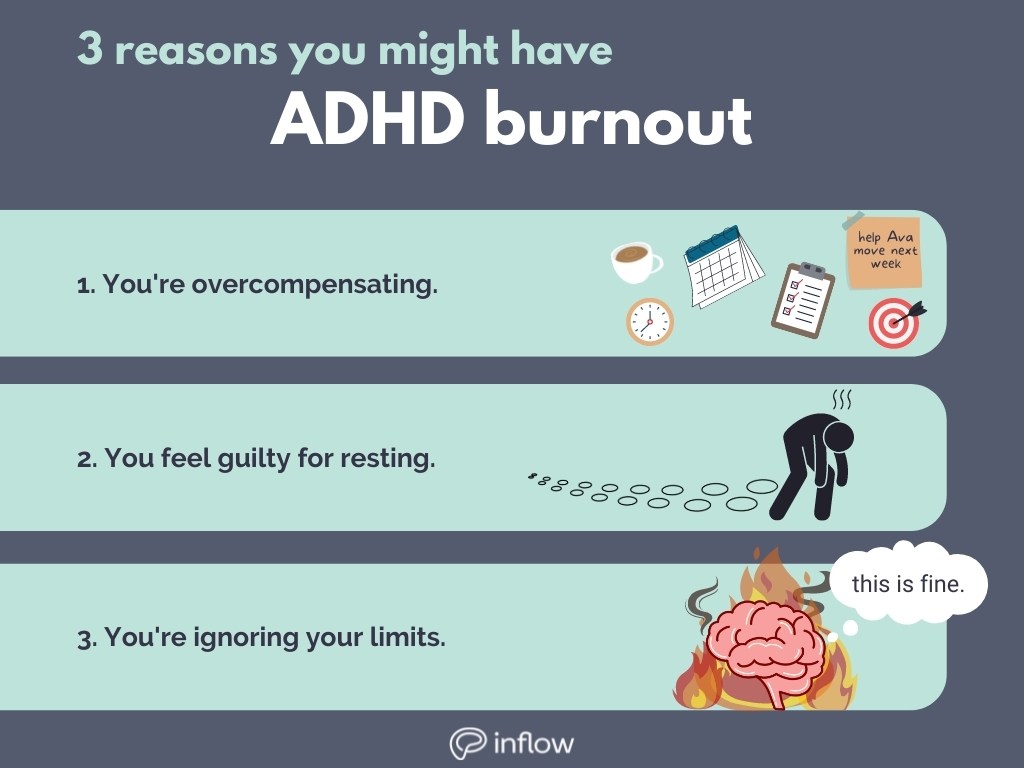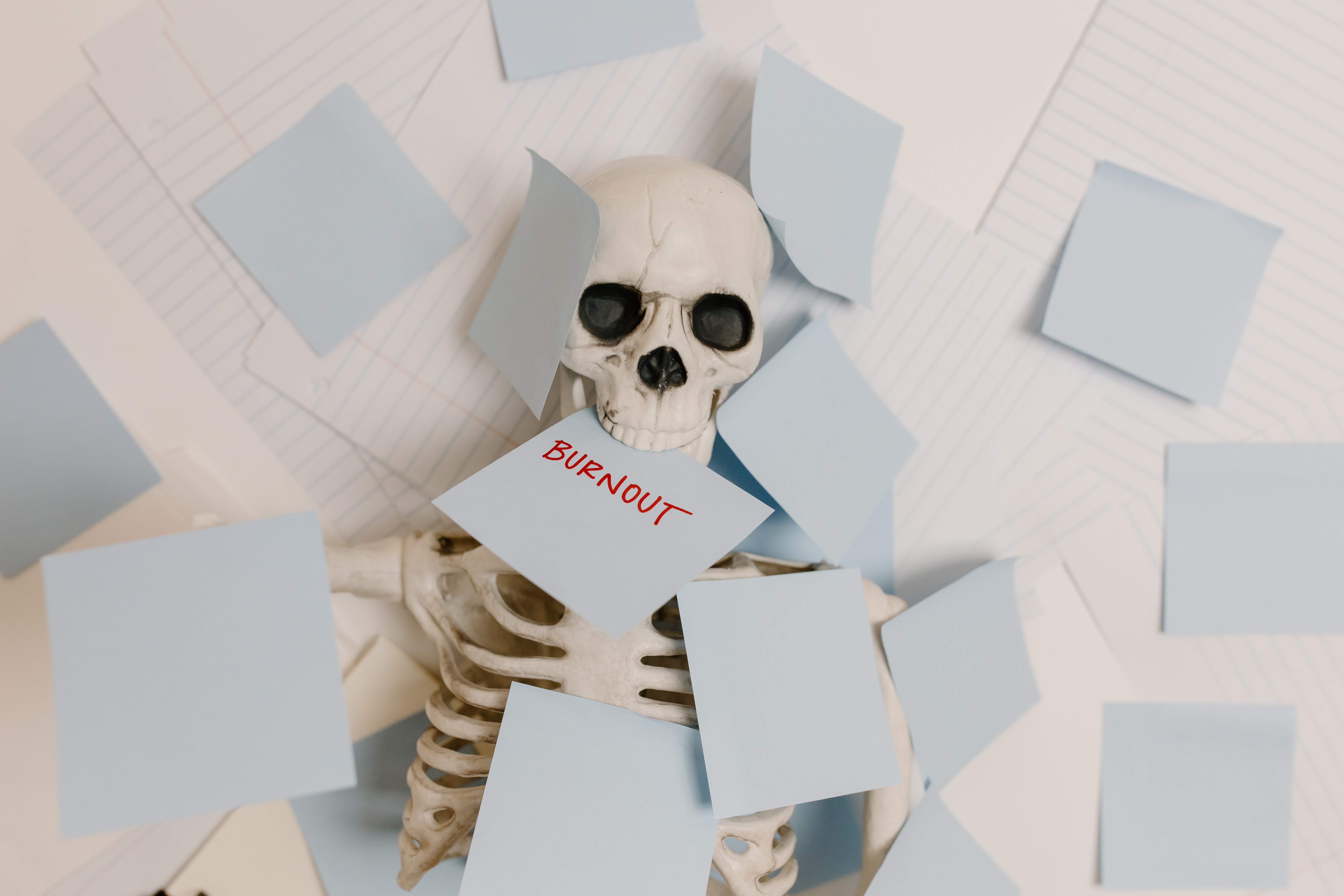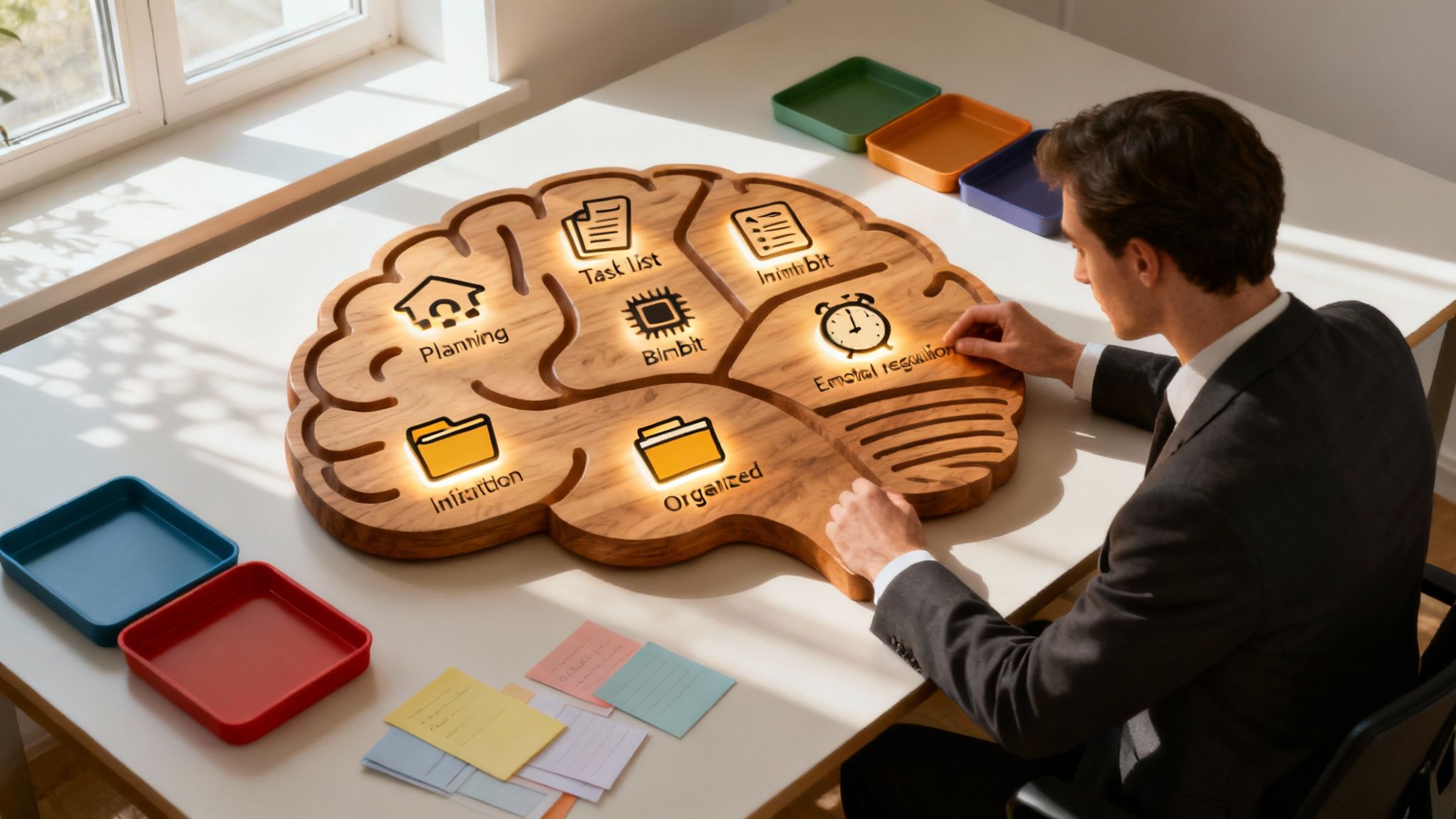If you have ADHD, or attention-deficit/hyperactivity disorder, chances are, you know what it’s like to have about ten thousand balls up in the air.
At first, juggling it all can be exhilarating, if not a little chaotic. There’s often a brief, shimmery moment when it seems like you might actually be getting the hang of this thing. You might even feel accomplished as you look at everything on your plate — even if there’s a tiny voice in the back of your head telling you, “I can’t actually keep this up!” But as you’re frantically trying to keep it together, there comes a point when something hits the ground.
It’s the first domino of many.
That’s when things begin to fall apart. Your systems that kept you afloat are suddenly failing you. Important tasks are forgotten. Your memory starts to go. Deadlines hit you much faster than they used to. Your dishes begin to pile up to impossible heights. Your boss starts asking you about your “careless mistakes” and your friends wonder why they haven’t heard from you in weeks. The shame can be excruciating.
What begins as overwhelm ends in complete and total exhaustion. As your job performance plummets and your home looks like a tornado ran through it, you’re left wondering, “How did this all get away from me again?”
Too long; didn't read
• ADHD burnout happens when we overcompensate, overcommit, feel guilty for resting, and struggle to recognize limits and set boundaries.
• People with ADHD may experience burnout from childhood experiences of neurotypical expectations without adequate support.
• Prevent ADHD burnout by affirming self-worth, practicing saying "no" without apologizing, and four other helpful strategies.
What is ADHD burnout?
It’s possible that you’ve heard of Autistic burnout; however, ADHDers have a unique experience of burnout. Symptoms of ADHD burnout more broadly include:
- Lack of motivation
- Inability to concentrate
- Guilt
- Depression
- Anxiety
- Poor productivity
- Irritability
- Cynicism
The overlap of symptoms and comorbid conditions can make it difficult to identify when ADHDers are truly struggling with burnout, though.
ADHD burnout is often something a little deeper. It refers to the cycle of overcommitting and overextending that leads to fatigue in people with ADHD. It involves taking on too many tasks and commitments, and then the subsequent exhaustion that happens when we’re unable to fulfill all of our obligations.
In other words, it’s our tendency to bite off more than we can chew... and then spit it out where no one can see for fear of rejection or letting others down if they were to see us struggling. But why is burnout so prevalent in our community especially?
Here are the top three reasons why ADHDers struggle with burnout—and how we can combat it.
Why do people with ADHD struggle with burnout?
There are more than a few reasons why people with ADHD may experience burnout. Here are the top 3 most common causes:

1. We’re overcompensating and overcommitting
Growing up, many ADHDers experienced the crushing weight of expectation. Whether it was caregivers or educators, we were often told that we weren’t trying hard enough. It felt like we were always just shy of reaching our full potential.
In actuality, we were being asked to function like neurotypical children, and without adequate support for our ADHD brains and executive dysfunction struggles. This is where many of us internalized the idea that we were lazy, careless, or unintelligent.
These false beliefs can lead to overcompensation, in which we compulsively try to please people and make up for these “shortcomings” we think we have. We’re constantly striving, though the goal posts keep moving on us.
This tendency to people-please can be carried into our adulthood, and is a recipe for overexertion. It also makes it difficult to admit that we’re struggling, because we don’t want to let others down. This relentless effort to appear neurotypical is often referred to as “ADHD masking,” and can be a source of real fatigue for people with ADHD.
"If we attach our self-worth to our work—instead of accepting that our abilities and our commitments will ebb and flow—we're being pretty unkind to ourselves. . . But maybe the pressure you put on yourself to constantly achieve is actually part of what's keeping you stuck."
- The Inflow app | Burnout module, day 2
Learn more valuable lessons on how your ADHD can contribute to burnout on the Inflow app. Take our ADHD quiz to get started.
2. We feel guilty for resting
When we’re already combating a stereotype of laziness, many of us feel guilty about resting. It can feel easier to be in constant motion (whether we experience hyperactivity or not!) because it feels safer to be doing something than risk the judgment that can come with doing “nothing.”
We might even believe that if we were to allow ourselves to rest, we would never get anything done, because we would struggle to get started again (task initiation is a big struggle for us). The irony is that denying yourself rest is the quickest route to exhaustion, and can exacerbate ADHD symptoms. It can be hard to pump the brakes and practice rest when there are so many negative associations with it.
After a lifetime of being told to “try harder,” it can feel counterintuitive—sometimes impossible—to try less and rest more.
3. We struggle to recognize our limits and set boundaries
Part of executive dysfunction means that we have trouble sequencing, initiating, and organizing our tasks — which are all symptoms of ADHD. This also means we struggle to estimate how much time and effort something will take, making it easy to overcommit by accident. We may also struggle with setting boundaries.
As people-pleasers, we were discouraged from having boundaries at a young age. We may struggle to say “no” for fear of disappointing others or being rejected (something we’re already sensitive to anyway; this is known as rejection sensitive dysphoria).
As we accumulate more and more tasks, it can begin to feel unmanageable, leading to the dreaded overwhelm-shutdown. This is a freeze response that can happen when we’re unable to begin or complete a task. This “stuck” feeling can exacerbate our anxiety and make it difficult to move forward.
How to avoid ADHD burnout
There are some golden rules for preventing burnout that I think are crucial for ADHDers to remember. Here are a few:
1. Affirm your self-worth
Your worth is not dependent upon what you give to people, and your sole purpose in life isn’t to make everyone but yourself happy. As the saying goes, “Don’t set yourself on fire to keep others warm.” You are inherently valuable, regardless of how useful, productive, or helpful you are to others.
2. Practice saying “no” without apologizing
You can’t be everything to everyone, and your capacity is not limitless, no matter what your brain tells you. Give yourself full permission to say “no, I can’t,” “I don’t have time for that,” “I’m not available at that time,” and every other variation on that. You may disappoint someone, sure!
But you aren’t responsible for managing other people’s emotions.
3. Overestimate how much time something will take
This is a general rule that I find quite helpful. Take the amount of time you think something will take—and double it. It may feel absurd at first, but it’s better to overestimate than to underestimate, and this will help you get a stronger sense of your limitations.
4. Commit to rest
Notice I’m saying “commit to rest” and not “practice self-care.”
Some of us (certainly not me…) have turned self-care into another set of expectations we feel the need to fulfill. Let that go.
Instead, practice: laying down, daydreaming, deep breathing, and anything else that helps you reset.
5. Ask for help when you need it
It’s okay to struggle, and it’s okay to ask for support when you do struggle—whether that's therapy, your colleagues, an ADHD coach or a manager at work.
Workplace accommodations and school accommodations can also make a huge difference.
6. Drop the mask
Many neurodiverse individuals try to mask their ADHD and/or autism by not letting others see them sweat—but this doesn’t allow us the opportunity to be helped and supported when we need it most.
You deserve every resource you need to thrive—don’t convince yourself that you have to do this thing alone.








